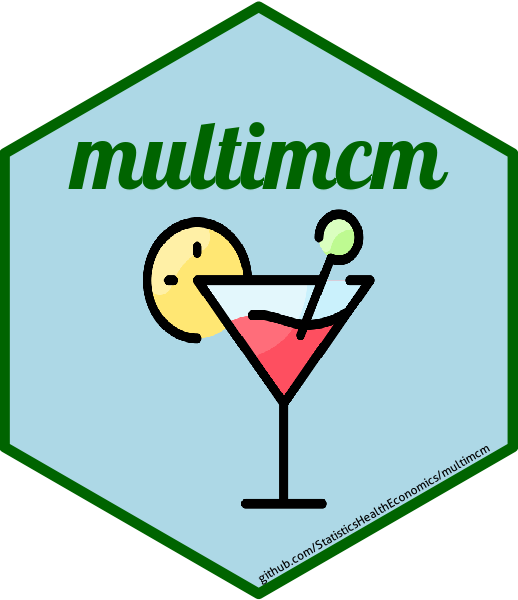Multilevel mixture cure modelling in Stan
The goal of multimcm is to jointly model two event time distributions (e.g. time to disease progression (PFS) and time to death (OS)) within a Bayesian relative survival mixture cure model framework, using the Stan engine called from R.
Installation
You can install the development version from GitHub with:
# install.packages("remotes")
remotes::install_github("StatisticsHealthEconomics/multimcm")Motivation
Mixture cure models are increasingly popular in health problems and in particular in oncology. A Bayesian paradigm allows the explicitly incorporation of uncertainties and principled synthesis of prior knowledge such as via expert elicitation or previous trials. By extending current methods to account for the dependence between event times we leverage additional information to make better inferences and decisions.
Example
This package was originally written for this paper Green (2025).
Code of Conduct
Please note that this project is released with a Contributor Code of Conduct. By contributing to this project, you agree to abide by its terms.
References
- Green, N., Kurt, M., Moshyk, A., Larkin, J. and Baio, G. (2025), A Bayesian Hierarchical Mixture Cure Modelling Framework to Utilize Multiple Survival Datasets for Long-Term Survivorship Estimates: A Case Study From Previously Untreated Metastatic Melanoma. Statistics in Medicine, 44: e70132. https://doi.org/10.1002/sim.70132
